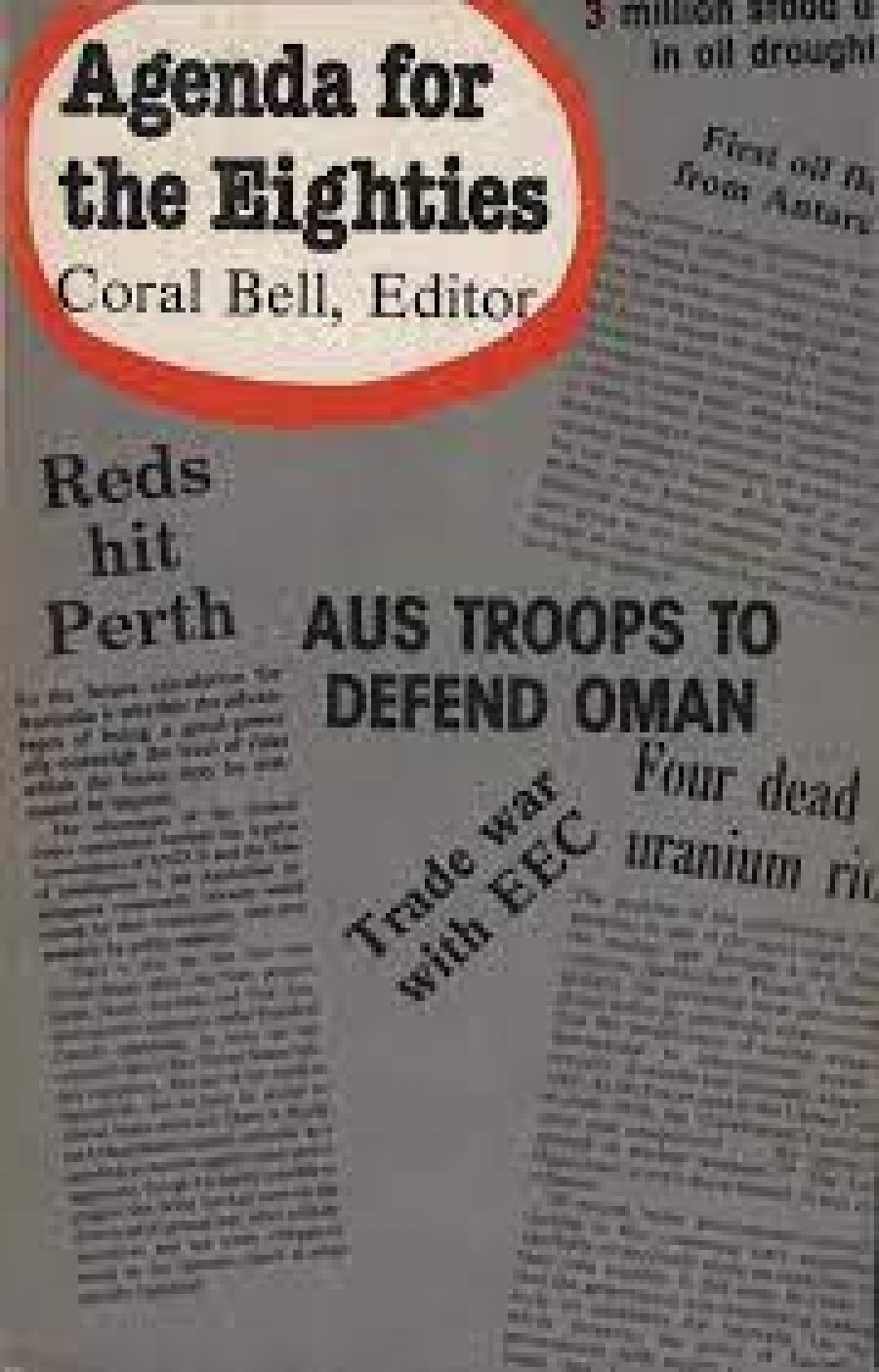
- Free Article: No
- Contents Category: Politics
- Review Article: Yes
- Article Title: Prophecy?
- Online Only: No
- Custom Highlight Text:
This book is a useful acquisition for those anxious about Australia’s prospects in the 1980s and while it does not exude optimism it contains a generally hopeful outlook which, given the way things are going, could be a rare commodity in 1990. The topics covered are those thought the most complex and difficult which the policymakers are likely to confront this decade. The essays are of a variable quality and somewhat less than uniform in style but Professor Coral Bell gives this volume a focus and an overall perspective in her preface. Her excellent opening chapter and final remarks (arising from the debates at the ANU Seminar) make up for some of the deficiencies of her distinguished colleagues. As she observes, there is no great optimism to be found in these pages, but at least the prophets of doom have been held at bay. She writes that ‘anyone writing in 1979, and reasonably in touch with international opinion on matters like the possibility of a major depression, or an energy crisis, or SovietChinese or Soviet-American confrontations in the early 1980’s must be bound to take a rather sober view of the prospect for mankind, including Australians’. She asserts that the issues confronting Australia in the 1980s are likely to be those that were evident in the 1970s and that there remain almost immutably the same preoccupations, namely the search for security and prosperity. She must be right.
- Book 1 Title: Agenda for the Eighties
- Book 1 Subtitle: Contexts of Australian choices in foreign defence policy
- Book 1 Biblio: ANU Press, $12.95, 256 pp
If however Australian policy-makers have time to read and are in need of advice they could do worse than consult this book, which represents a solid example of distilled wisdom and carefully balanced arguments. There is not a single bad chapter though, for my money, Robert O’Neil on ‘Diplomacy and Defence’, Desmond Ball on ‘Nuclear Policy’ and Mohammed Ayoob on the ‘Indian Ocean’ are the chapters that the busy policy-maker must simply read, and as for the others, they can be read as an when the mood takes them.
The final summing up by Coral Bell is something that every policy-maker in Australia ought to read. It brilliantly encompasses the entire book; she dissects the issues of the eighties with wit and intellectual clarity. Professor Bell discusses the question of Australia’s relation to the central power balance; the vexed issue of the mining and sale of uranium; the suppressed problem created by the pressure of some 37,000 Vietnamese who could be settled in Australia and who would constitute the biggest influx of Asians since the goldrush days of the nineteenth century; the issues of Australia’s relations with the ASEAN nations and the lack of genuine congruence of interests between those nations and Australia itself; the problems of a balance-of-power system in Asia which could depend upon a powerful Vietnam as well as a growingly powerful China which could complicate Australian diplomacy towards the end of the decade; the issue of the Indian Ocean and Australian attitudes towards the black African states; the question of antiWestern Islamic feeling in Iran and Pakistan (which could have considerable over-spill results for Australian strategy and diplomacy in regard to the Indian Ocean over the next ten years also the fear of a major crisis in the Persian Gulf area which must grow in Australian consciousness, as well as the certainty that the great avalanche of change in relations between the industrialised world and the oil-producers (already fairly considerable) will possibly explode into a great balkenesque crisis (possibly of 1914 dimensions); that Australia when it comes to the crunch must ride with the first world – Japan, Western Europe and the United States – which provides its markets.
She concludes however that events will confound all prophecy and that perhaps the only certainty is that the problems for Australian policy-makers seem likely to remain essentially much the same: identifying the national interest, controlling the pace of change and its untoward consequences.
This book deserves to be widely read.


Comments powered by CComment